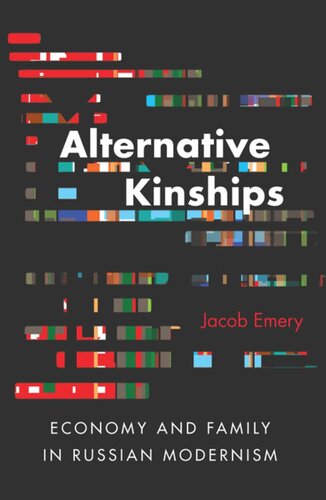

Most ebook files are in PDF format, so you can easily read them using various software such as Foxit Reader or directly on the Google Chrome browser.
Some ebook files are released by publishers in other formats such as .awz, .mobi, .epub, .fb2, etc. You may need to install specific software to read these formats on mobile/PC, such as Calibre.
Please read the tutorial at this link: https://ebookbell.com/faq
We offer FREE conversion to the popular formats you request; however, this may take some time. Therefore, right after payment, please email us, and we will try to provide the service as quickly as possible.
For some exceptional file formats or broken links (if any), please refrain from opening any disputes. Instead, email us first, and we will try to assist within a maximum of 6 hours.
EbookBell Team

5.0
30 reviewsAccording to Marx, the family is the primal scene of the division of labor and the "germ" of every exploitative practice. In this insightful study, Jacob Emery examines the Soviet Union's programmatic effort to institute a global siblinghood of the proletariat, revealing how alternative kinships motivate different economic relations and make possible other artistic forms. A time in which literary fiction was continuous with the social fictions that organize the social economy, the early Soviet period magnifies the interaction between the literary imagination and the reproduction of labor onto a historical scale. Narratives dating back to the ancient world feature scenes in which a child looks into a mirror and sees someone else reflected there, typically a parent. In such scenes, two definitions of the aesthetic coincide: art as a fantastic space that shows an alternate reality and art as a mirror that reflects the world as it is. In early Soviet literature, mirror scenes illuminate the intersection of imagination and economy, yielding new relations destined to replace biological kinship—relations based in food, language, or spirit. These metaphorical kinships have explanatory force far beyond their context, providing a vantage point onto, for example, the Gothic literature of the early United States and the science fiction discourses of the postwar period. Alternative Kinships will appeal to scholars of Russian literature, comparative literature, and literary theory, as well as those interested in reconciling formalist and materialist approaches to culture.